-
First responders used runners because radios did not work underground
Emergency services battling to save lives in the wake of the 7 July 2005 London bombings needed to use runners to send messages back to the control room as their radios did not work underground, an inquest into the terrorist attacks has heard
-
-
Captive Briton accidentally killed by rescuers
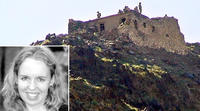
A British aid worker held captive in Afghanistan may have been accidentally killed by a hand grenade tossed by U.S. forces during a daring rescue attempt; it was initially thought that the 26-year old woman died when one of her captive exploded a suicide vest he was wearing, but video evidence now suggest the captive was killed by the forces that came to rescue her; a full U.S./U.K. investigation — which would last several days — was being launched; it will be led by Maj Gen Joseph L Votel, the chief of staff at U.S. Special Operations Command and the results are expected to be made public
-
-
London bombings "planned for 24 hours earlier"
Four Islamic terrorists behind the 7 July 2005 bombings may have intended to commit mass murder twenty-four hours earlier, the inquests into the deaths of their fifty-two innocent victims have heard; the reason for the delay: ringleader Mohammed Sidique Khan visited Dewsbury Hospital with his wife, Hasina Patel, on 5 July because of complications with her pregnancy; she miscarried on the day of the attacks; the hearing was told that the Metropolitan Police investigation database is the largest ever created and thousands of documents have been considered for the inquests
-
-
Interpol: arrest warrants for 3 Pakistani military officers for Mumbai attacks
Interpol has issued warrants for the arrest of three Pakistani military officers — two serving officers in the Pakistan army and a retired Pakistan Army Major — for masterminding the 2008 terror attacks on Mumbai in which 166 were killed; the development follows an admission earlier this week by the former Pakistani military ruler General Musharraf that Pakistan had raised terrorist groups to attack India because of India’s refusal to negotiate over the dispute on the future of Kashmir
-
-
Insights into molecular behavior may encourage nuclear proliferation
The conventional separation techniques of the more fissionable uranium 235 from uranium 238, rely on giant centrifuges that are difficult and expensive to build and so form an important technology barrier that prevents countries with nuclear weapons aspirations from making their own highly enriched uranium; there is a growing fear, however, that laser enrichment will make this much process easier; now there is a new technique for controlling the trajectories of spinning molecules could make isotope separation even easier
-
-
British citizen killed in Pakistan linked to Times Square bomber
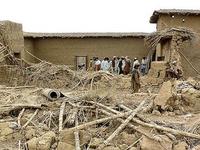
The Obama administration, having concluded that Pakistan has been unwilling aggressively to pursue al Qaeda and Afghan Taliban militants in the Pakistani tribal lands, has dramatically stepped up attacks by UAVs and special forces on Taliban and al Qaeda targets in Pakistan; the attacks have been escalated not only quantitatively, but qualitatively as well: the presence of European citizens — and, presumably, U.S. citizens — in the militants’ training camps no longer serves as a deterrence; the killing on Monday of nine Germans one Briton in a CIA drone attack is the latest example
-
-
Growing worries about terror groups' tech-savvy Western recruits
The latest trend in al Qaeda’s operational approach: recruiting tech-savvy Westerners; James Clapper, U.S. director of national intelligence: “The increasing role of Westerners, including Americans in al Qaeda-associated groups, increases their knowledge of Western culture and security practices and of course enhances their access—- That obviously raises the potential specter of attacks”
-
-
Regulators: N.J. nuclear plant employee was an Islamic jihadist
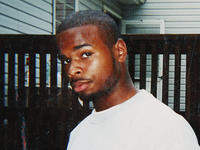
A 26-year old American, Sharif Mobley, now under arrest in Yemen for terrorist activities, became an Islamic militant while working for six years at several nuclear plants in New Jersey, Pennsylvania, and Maryland; the man — who told fellow workers “We are brothers in the union, but if a holy war comes, look out” — had unescorted access to the interior of the plants; to have unescorted access to secure areas of a nuclear power plant, a person must undergo a background investigation, including a criminal record check and a psychological assessment — but the rules did not account for temporary workers who migrate from plant to plant, as Mobley did
-
-
Voice biometrics help detect Euro terror plot
Western intelligence services say that the discovery of the recent Euro terror plot owes at least some of its success to voice recognition technology that allows law enforcement electronically to match a voice to its owner; the technique can be an effective antiterror tool, and law enforcement agencies are already considering how a voice database could help thwart future plots
-
-
Missing links unveiled?
Two years ago a high-level Syrian general was killed; are we getting closer to the truth about the operation that led to his assassination? Also: Musharaf speaks about the past — but what about the future?
-
-
U.S. intelligence: Europe terror plot did not target Americans
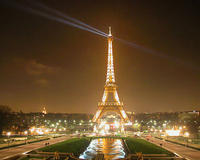
U.S. intelligence says the latest threat did not appear to involve the United States; possible targets of the plot included several tourist attractions across Paris and Berlin. ABC News reported Monday that at least five European airports could be targeted as well; the list of possible targets includes the Eiffel Tower in Paris and the luxury Hotel Adlon near Berlin’s Brandenburg Gate, the Notre Dame Cathedral in Paris, as well as Berlin’s Central Station and its landmark Alexanderplatz TV tower; one official said security has also been tightened around the British royal family
-
-
Evolving terrorist threat: home-grown radicalized Western Muslims to the fore
The relentless attacks by U.S. drones — and, away from the headlines, U.S. special forces — on militants’ hideouts in Pakistan — and also, to an extent, the half-hearted, pick-and-choose-among-militants campaign by the Pakistani military — have forced al Qaeda to rely more and more on home-grown, radicalized Islamists in Western countries for terrorist actions instead of militants from Muslim countries
-
-
Number of extremist, hard-to-police Web sites skyrockets
The number of extremist Web sites has skyrocketed, expanding from 12 in 1998 to 4,500 in 2006; Western authorities say that taking action to remove them remains difficult; different countries have adopted different approaches to the problem
-
-
Pakistan: Several dozens of Europeans in terror training in Pakistan
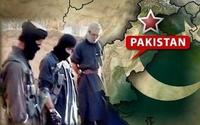
Pakistan, Western intelligence agencies say several dozens Muslim militants with European citizenship are believed to be hiding out in the lawless tribal area of northwestern Pakistan, training for missions that could include terror attacks in European capitals; among the militants are at least twenty British and twenty German citizens; the groups voice-printing software enables British intelligence to identify and track specific individuals believed connected to terror plots; mobile phone communications have been tracked from the border area to points in Britain, particularly England’s Midlands, where there is a heavy Pakistani immigrant population
-
-
Mumbai-like terror attack on European cities foiled
Al Qaeda- and Taliban-affiliated terrorists based in Pakistan planned a Mumbai-like attack on London and other European cities; experts say the plot is believed to have moved from the aspirational stage to actual planning; rather than set up explosives to blow up buildings, the terrorists would have used machine-guns and hand grenades to kill as many people as possible; improved Western intelligence capabilities made Western authorities aware of the plot, and as the organizers of the attack and the militants who were to carry it out gathered in Pakistan for training and last-minute instructions, a barrage of precise missile attacks from CIA drones — some 20 sorties in all — killed many of the plotters and disrupted their preparations
-
More headlines
The long view
How Male Grievance Fuels Radicalization and Extremist Violence
Social extremism is evolving in reach and form. While traditional racial supremacy ideologies remain, contemporary movements are now often fueled by something more personal and emotionally resonant: male grievance.
